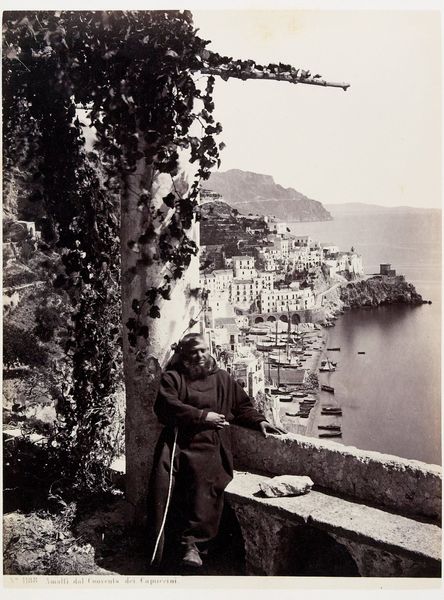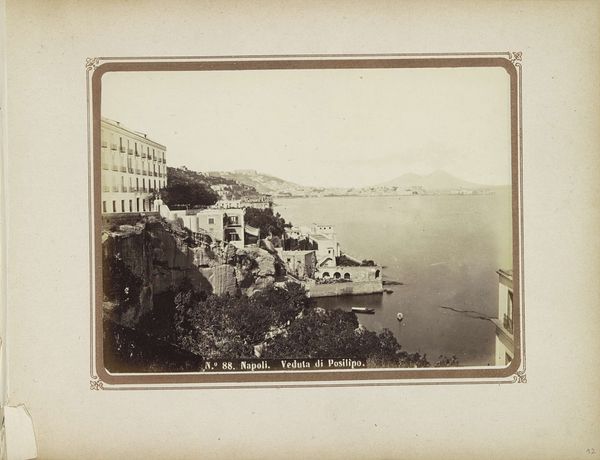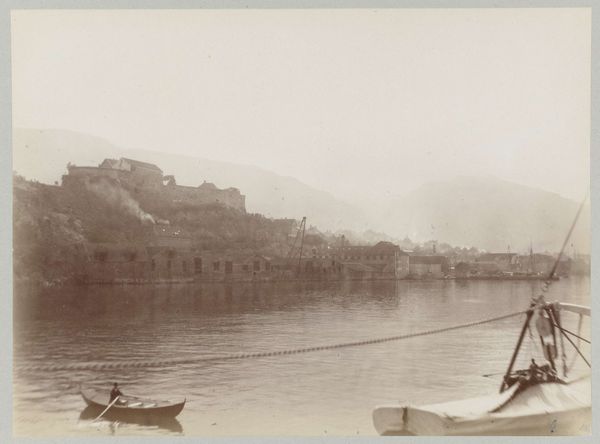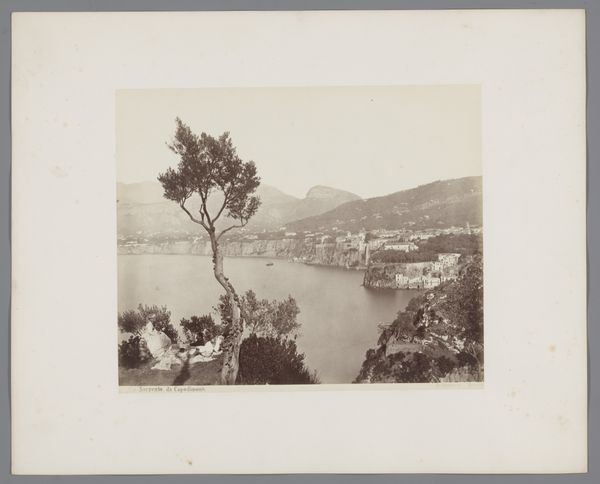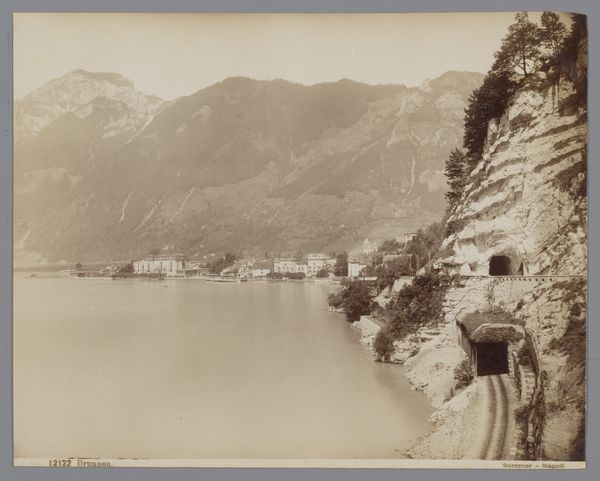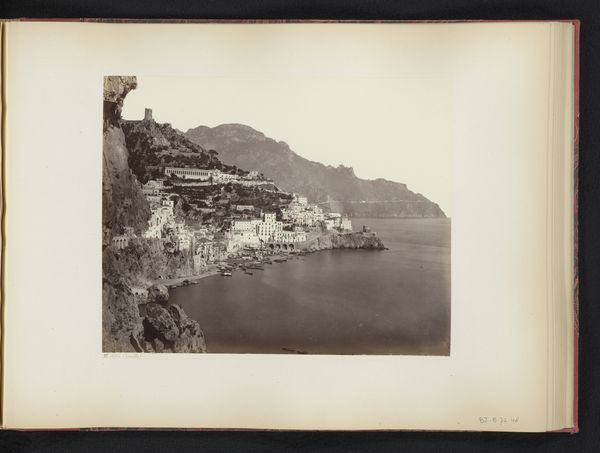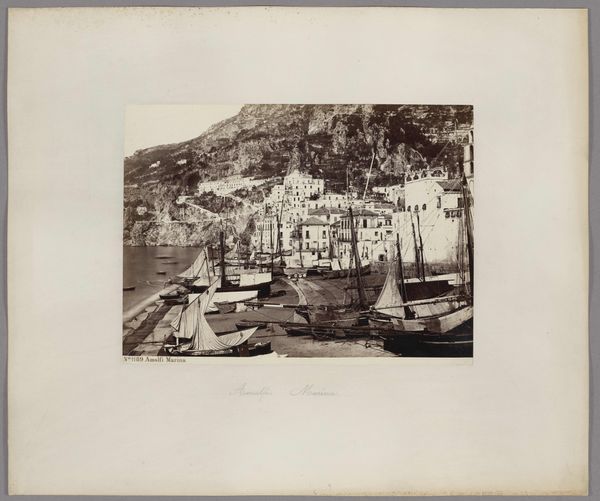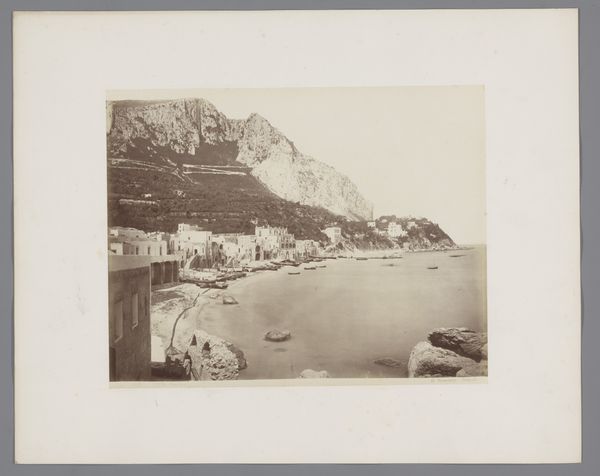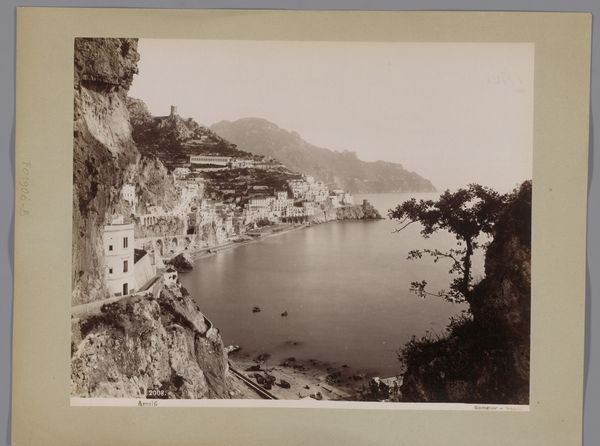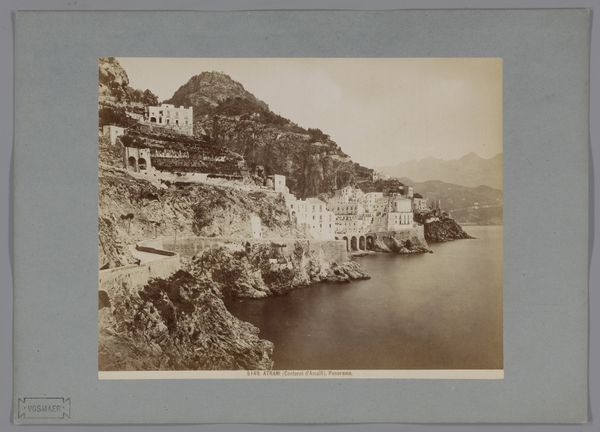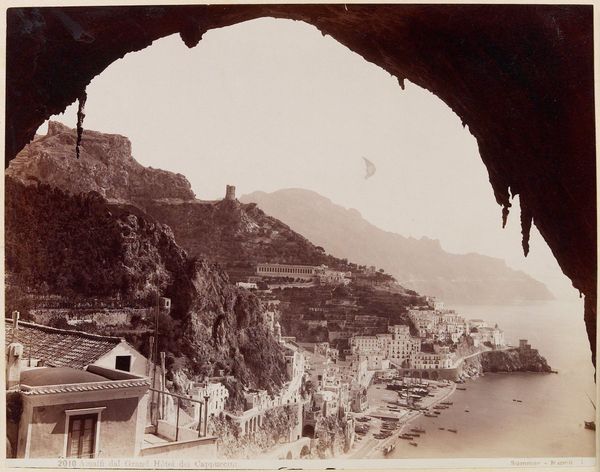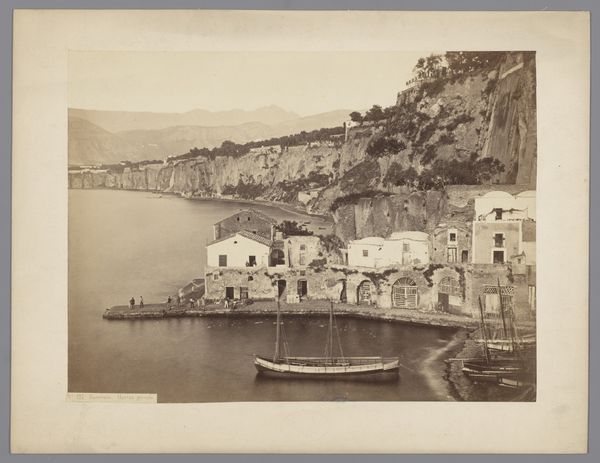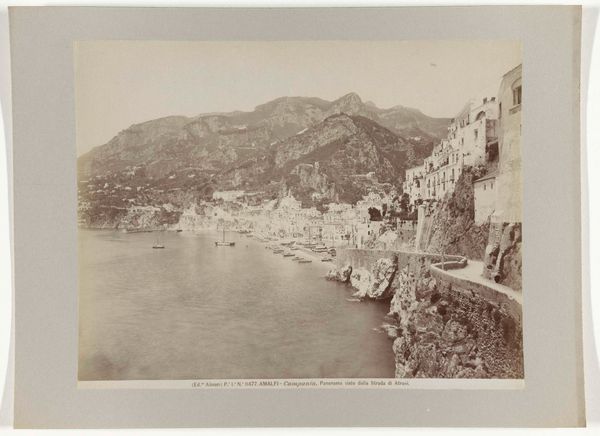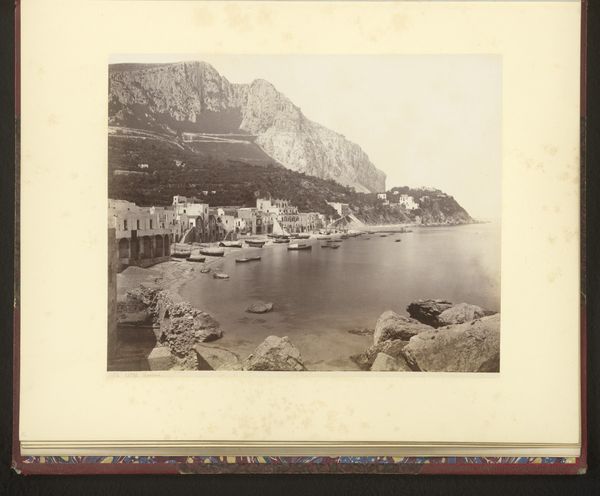
photography, gelatin-silver-print
#
portrait
#
16_19th-century
#
pictorialism
#
landscape
#
archive photography
#
street-photography
#
photography
#
historical photography
#
orientalism
#
gelatin-silver-print
#
19th century
Dimensions: height 198 mm, width 252 mm
Copyright: Rijks Museum: Open Domain
Giorgio Sommer captured this view of Amalfi from a Capuchin monastery using a photographic process that was becoming increasingly popular during his time. The sepia tones of the photograph are a direct result of the chemical processes used to develop the image on paper. Each print required careful work in the darkroom, controlling exposure and development times to achieve the desired tonal range and sharpness. Sommer, like other photographers of the era, would have been deeply involved in the craft of photography, from preparing his own emulsions to carefully mounting the finished prints. The rise of photography in the 19th century reflects a growing interest in capturing and disseminating images of the world. It also speaks to broader social changes, including the rise of tourism and the desire to document and preserve moments in time. Sommer’s photographs provided people with views of faraway places, making the world more accessible through mass-produced images. Ultimately, Sommer's work encourages us to consider how photography intertwines art, technology, and society, breaking down traditional distinctions between art and craft.
Comments
No comments
Be the first to comment and join the conversation on the ultimate creative platform.
